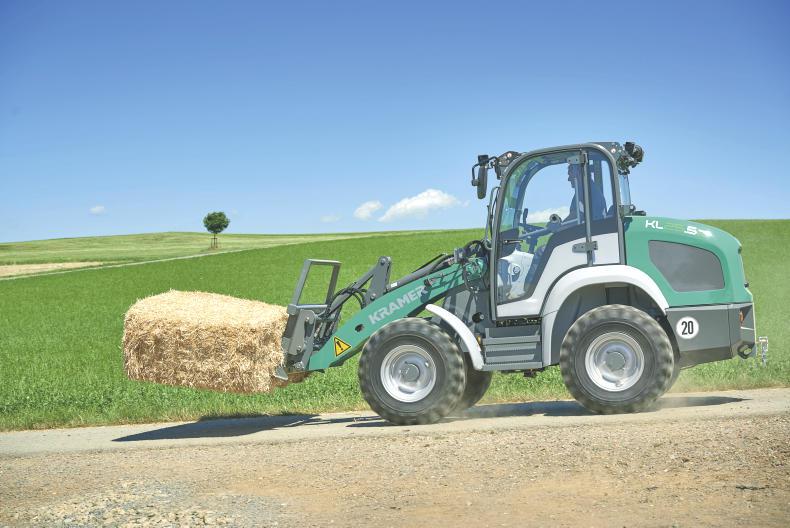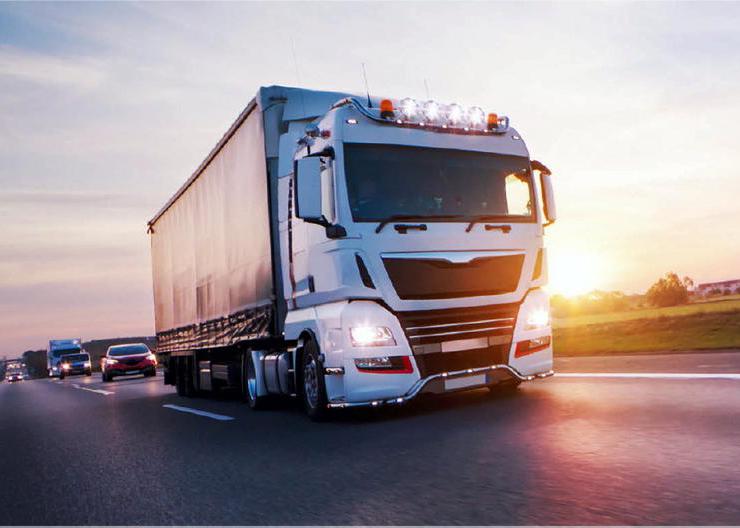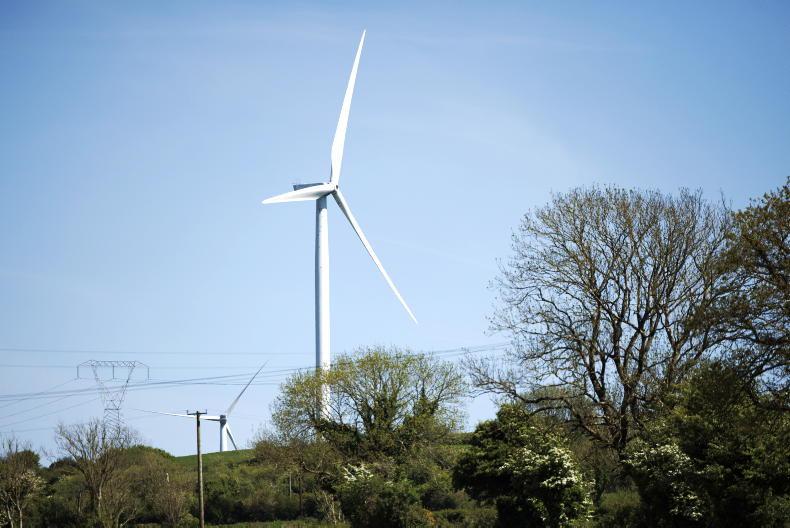Even though our diesel engines are getting cleaner and cleaner each year, the fact of the matter is, diesel will not be around forever.
Eventually, the day will come where we will have to rely solely on other fuel types. But is the industry anywhere near ready for this? Some may say we are years away from finding a credible alternative to diesel power.
When it comes to the tractors and all other farm machinery of today, users and modern farming practices require more and more power.
A big influence on this is time, meaning larger machine working widths. Throughput expected from machines is greater, due to smaller windows for getting jobs done, with weather, among other factors, being the main cause.
The main issue with proposed alternatives such as electric and biofuel is their ability to stand up alone.
Alternatives to date
New Holland Agriculture is the tractor manufacturer which has made the most headway to date with biofuel designs. It has developed hydrogen, propane and methane-powered tractor prototypes.
Development was paused a number of years ago on the hydrogen concept due to cost. It was introduced in 2009, with the first prototype costing New Holland more than €500,000 to develop.
According to the company’s agriculture president Carlo Lambro, the cost of the fuel cell system for the hydrogen was too expensive, while there is more potential in the methane option, says Lambro.
Others brands such as John Deere, Fendt and JCB have done some work on the electric power front.
Last year, New Holland unveiled its concept methane-powered tractor. This tractor shows the company has heavily invested in methane as a viable source of future propulsion. Before this concept, its methane-powered tractor looked like a normal T6 with an odd-shaped cab, launched in 2013.
The brand imagines the farm of the future as being completely energy independent. That farms produce not only food, but also the biomass needed to generate the energy to run its operations and power its tractors and other machinery.
Could this be a success given the increasing numbers of anaerobic digesters being built across Ireland?
New Holland claims the resulting fuel has a virtually zero CO2 profile and delivers an 80% reduction in overall emissions and noise levels compared with current diesel engines.
However, there is still no mention of costs to date and there is still a long way to go.

The Kramer 5055e all wheel steered fully electric loader.
Large fully electric tractors don’t seem to be an area manufacturers are looking into. This is probably due to the fact these motors would have to be supplied with power from large batteries.
A tractor in excess of 175hp would require a battery weighing up to 3t and would need eight hours of charge just to operate for one hour. But a number of manufacturers are looking into electric tractors in the lower horsepower brackets.
Fendt, for example, has prototyped a 67hp full electric tractor. The Fendt e100 Vario gets its energy from a 650v high-capacity lithium-ion battery with a capacity of around 100kWh. Power can be sustained for five hours under normal working conditions, according to Fendt, and with a supercharging option, the battery can be 80% recharged in about 40 minutes. The fact it is emission-free and emits low levels of noise are attractions of the machine.
But until battery technology is improved, fully electric tractors will not be able to come close to matching the outputs that are achieved on the diesel machines today.
Having mentioned fully electric tractors and their limitations, it is worthwhile mentioning that this year’s EIMA event saw the launch of the new Carraro Ibrido tractor.
This is an orchard tractor created to cut emissions while reducing fuel consumption at the same time.
The tractor won EIMA’s technical innovation award as well as EIMA’s blue award for the environment.
The Italian-manufactured Ibrido is more or less identical to any other conventional 105hp orchard tractor. It includes an internal combustion engine and an electrical motor used for the mechanical propulsion of the tractor, via a traditional 24 + 24 synchronised mechanical transmission.
Operators can choose whether they wish to work in:
Pure electric mode: ideal for use inside closed structures such as greenhouses.Diesel only: for road transportation or when not carrying/towing heavy loads.Hybrid: for transport operations when towing or carrying loads, or for heavy PTO operations.Telehandler electric
propulsion and
hybridisation
Telehandlers, unlike tractors, seem to be making more advancements in making the switch to alternative power sources.
Manitou
Manitou has recently equipped two Manitou construction telehandler prototypes with electric and hybrid drive systems.
The fully-electric Manitou MT 1135 telehandler is equipped with a 360-volt vehicle power supply and a 60kW electric motor. The battery, with a generous 30kWh capacity, ensures that the required level of energy is delivered.
The MT 1335 generally comes with a 75kW Deutz TCD 3.6 diesel engine. For the hybrid prototype, this diesel engine has been replaced by a Deutz TCD 2.2, which generates 55kW, plus a 20kW electric motor.
Kramer
The Kramer 5055e is the first all-wheel-steered fully-electric wheel loader. The new cost-efficient and emission-free electric drive is very much suitable for work in buildings and noise-sensitive areas.
The 5055e features a compact design and great manoeuvrability thanks to all-wheel steering. Its drivetrain is powered by a 15kW motor and its hydraulics by a 22kW motor. Its 80V battery has a capacity of 416Ah, weighing in at 1,230kg. Up to five hours of use can be achieved from one charge.
Even though our diesel engines are getting cleaner and cleaner each year, the fact of the matter is, diesel will not be around forever.
Eventually, the day will come where we will have to rely solely on other fuel types. But is the industry anywhere near ready for this? Some may say we are years away from finding a credible alternative to diesel power.
When it comes to the tractors and all other farm machinery of today, users and modern farming practices require more and more power.
A big influence on this is time, meaning larger machine working widths. Throughput expected from machines is greater, due to smaller windows for getting jobs done, with weather, among other factors, being the main cause.
The main issue with proposed alternatives such as electric and biofuel is their ability to stand up alone.
Alternatives to date
New Holland Agriculture is the tractor manufacturer which has made the most headway to date with biofuel designs. It has developed hydrogen, propane and methane-powered tractor prototypes.
Development was paused a number of years ago on the hydrogen concept due to cost. It was introduced in 2009, with the first prototype costing New Holland more than €500,000 to develop.
According to the company’s agriculture president Carlo Lambro, the cost of the fuel cell system for the hydrogen was too expensive, while there is more potential in the methane option, says Lambro.
Others brands such as John Deere, Fendt and JCB have done some work on the electric power front.
Last year, New Holland unveiled its concept methane-powered tractor. This tractor shows the company has heavily invested in methane as a viable source of future propulsion. Before this concept, its methane-powered tractor looked like a normal T6 with an odd-shaped cab, launched in 2013.
The brand imagines the farm of the future as being completely energy independent. That farms produce not only food, but also the biomass needed to generate the energy to run its operations and power its tractors and other machinery.
Could this be a success given the increasing numbers of anaerobic digesters being built across Ireland?
New Holland claims the resulting fuel has a virtually zero CO2 profile and delivers an 80% reduction in overall emissions and noise levels compared with current diesel engines.
However, there is still no mention of costs to date and there is still a long way to go.

The Kramer 5055e all wheel steered fully electric loader.
Large fully electric tractors don’t seem to be an area manufacturers are looking into. This is probably due to the fact these motors would have to be supplied with power from large batteries.
A tractor in excess of 175hp would require a battery weighing up to 3t and would need eight hours of charge just to operate for one hour. But a number of manufacturers are looking into electric tractors in the lower horsepower brackets.
Fendt, for example, has prototyped a 67hp full electric tractor. The Fendt e100 Vario gets its energy from a 650v high-capacity lithium-ion battery with a capacity of around 100kWh. Power can be sustained for five hours under normal working conditions, according to Fendt, and with a supercharging option, the battery can be 80% recharged in about 40 minutes. The fact it is emission-free and emits low levels of noise are attractions of the machine.
But until battery technology is improved, fully electric tractors will not be able to come close to matching the outputs that are achieved on the diesel machines today.
Having mentioned fully electric tractors and their limitations, it is worthwhile mentioning that this year’s EIMA event saw the launch of the new Carraro Ibrido tractor.
This is an orchard tractor created to cut emissions while reducing fuel consumption at the same time.
The tractor won EIMA’s technical innovation award as well as EIMA’s blue award for the environment.
The Italian-manufactured Ibrido is more or less identical to any other conventional 105hp orchard tractor. It includes an internal combustion engine and an electrical motor used for the mechanical propulsion of the tractor, via a traditional 24 + 24 synchronised mechanical transmission.
Operators can choose whether they wish to work in:
Pure electric mode: ideal for use inside closed structures such as greenhouses.Diesel only: for road transportation or when not carrying/towing heavy loads.Hybrid: for transport operations when towing or carrying loads, or for heavy PTO operations.Telehandler electric
propulsion and
hybridisation
Telehandlers, unlike tractors, seem to be making more advancements in making the switch to alternative power sources.
Manitou
Manitou has recently equipped two Manitou construction telehandler prototypes with electric and hybrid drive systems.
The fully-electric Manitou MT 1135 telehandler is equipped with a 360-volt vehicle power supply and a 60kW electric motor. The battery, with a generous 30kWh capacity, ensures that the required level of energy is delivered.
The MT 1335 generally comes with a 75kW Deutz TCD 3.6 diesel engine. For the hybrid prototype, this diesel engine has been replaced by a Deutz TCD 2.2, which generates 55kW, plus a 20kW electric motor.
Kramer
The Kramer 5055e is the first all-wheel-steered fully-electric wheel loader. The new cost-efficient and emission-free electric drive is very much suitable for work in buildings and noise-sensitive areas.
The 5055e features a compact design and great manoeuvrability thanks to all-wheel steering. Its drivetrain is powered by a 15kW motor and its hydraulics by a 22kW motor. Its 80V battery has a capacity of 416Ah, weighing in at 1,230kg. Up to five hours of use can be achieved from one charge.










SHARING OPTIONS